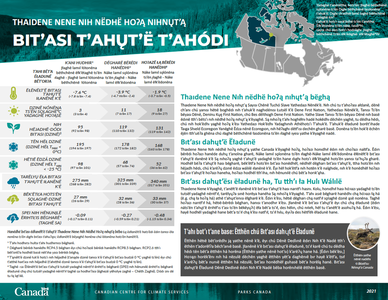|
We recently received communications from Environment and Climate Change Canada (ECCC) via Parks Canada re. highly pathogenic avian influenza in wild birds in Canada.
Highly pathogenic avian influenza was first detected in Canada in the Atlantic Provinces in December 2021 and is now spreading across Canada and the United States. To date, cases have been confirmed in multiple wild bird species including gulls, waterfowl, raptors, and corvids (e.g. ravens, magpies). With spring migration, Environment and Climate Change Canada (ECCC) anticipates cases in the North. According to the Public Health Agency of Canada, it is safe to hunt and eat healthy wild birds. However, it is important to be safe when handling wild birds. Signs that a bird may have highly pathogenic avian influenza include: nervousness, tremors or lack of coordination, swelling around the head, neck and eyes, lack of energy or movement, coughing, gasping for air or sneezing, diarrhea, or sudden death. Hunters are advised not to handle dead wild birds or live birds that are acting strangely. If you observe sick or dead birds and suspect that disease may be involved, contact a local renewable resources officer.  We are excited to announce the release of Parks Canada's climate change summary for the Thaidene Nëné National Park Reserve. Available in Dënesųłıné and English, this climate summary, which was produced in collaboration with the Canadian Centre for Climate Services (CCCS), informs and supports adaptation planning in Thaidene Nëné. |
AuthorWrite something about yourself. No need to be fancy, just an overview. Archives
July 2024
Categories |
CONNECT |
VISIONWe are the Lutsel K’e Dene First Nation. Our vision for Thaidene Nëné is:
Nuwe néné, nuwe ch'anıé yunedhé xa (Our land, our culture for the future). We’re working with our partners to permanently protect Thaidene Nëné—part of our huge and bountiful homeland around and beyond the East Arm of Tu Nedhé. |
